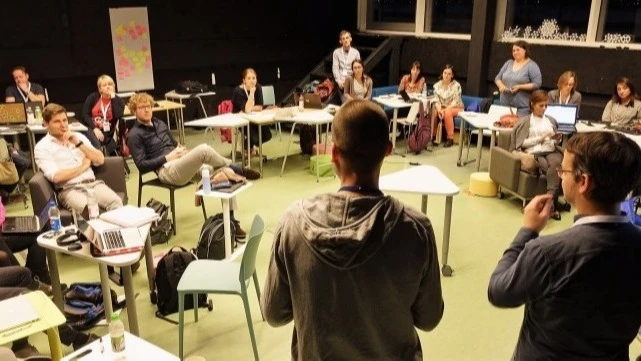Schools should promote internal trainings to uplift academics

THE teaching profession is among those that undergo rapid changes daily. This is due to the constant contributions of scholars conducting ongoing research and the continuous transformations in various spheres of human life.
People constantly strive for excellence across fields, creating a demand to improve education—which remains the driving force behind most areas of development affecting human life.
It is well recognized that challenges often spark the growth of knowledge as individuals work to overcome them. Knowing what others do becomes essential in order to compete, especially in a world where competition is inevitable.
Therefore, to keep pace with the speed of science and technology—now the foundation of development—it is essential to train teachers, who are the true shapers of society.
No one can teach what they do not know, and thus teachers must undergo regular training to maintain their credibility and contribute positively to society.
Achieving societal visions largely depends on teachers, who serve as the primary conveyors of knowledge. This reality compels educational institutions to invest significantly in hiring trainers to equip teachers with relevant skills and perspectives aligned with current global trends.
However, the substantial funds used to hire external trainers could be redirected to support other school development initiatives. This calls for a broader mindset on viable alternatives—and promoting internal training becomes a fitting solution.
Internal training offers a platform for teachers to share knowledge and skills essential for enhancing the teaching and learning process.
Within any school, teachers possess diverse experiences, talents and abilities to interpret challenges and offer solutions. If these academic assets are shared among staff, the likelihood of achieving excellence increases significantly.
What is often expected from external trainers may already exist within the school but remains untapped due to limited opportunities for teachers to showcase their capabilities. When schools operate under the belief that teachers lack influence and thus require external direction for every task, growth may be severely impaired.
While external training is valuable for introducing new perspectives, it should not imply that teachers lack foundational knowledge. Teachers deserve appreciation to stay motivated in their work. Training should be seen as a means to enhance existing knowledge—not to initiate it.
When necessary, external training should be conducted in a way that respects teachers’ expertise and avoids creating feelings of inferiority. Teachers should understand that they can support one another's growth and that external input merely serves to stimulate further professional development.
No one is perfect and learning from others is natural. Welcoming constructive feedback reflects strength and a willingness to grow. Therefore, external training should be complemented by internal initiatives due to the many benefits internal training brings, including the following:
Promoting learning among teachers
When teachers are asked to share their knowledge to enhance the teaching and learning process, they become more motivated to deepen their understanding. They feel honored and strive to live up to that recognition through quality presentations.
In such situations, both knowledge and competence among teachers increase—ultimately benefiting learners, who rely heavily on teachers for academic success. Well-informed teachers inspire learners to put greater effort into their studies.
Building confidence among teachers
Confidence is crucial for effective job performance. When teachers are trusted, their self-assurance grows as they feel valued, enabling them to carry out their duties more effectively.
Confident teachers enhance the teaching and learning process, leading to improved student outcomes—something all parents’ desire.
Promoting mutual intelligibility
When teachers help one another master specific skills and competencies, stronger bonds and collaboration naturally form. Teachers must maintain good relationships and cooperate efficiently to be most effective in their work. Internal training helps foster such connections, promoting both academic and social growth within the school.
Reducing school operational costs
Internal training is often cost-free, thus helping reduce school expenditures. Money saved can be allocated to other vital projects. When teachers feel respected and fulfilled, their financial demands often decrease. Therefore, using internal training to support professional growth may represent the most economically sound strategy for school management.
It is common for people to withhold what they know when not given a platform to express their capabilities. Such situations hinder progress within an institution and society at large. In schools, teachers often remain silent when professional development efforts exclusively value external trainers.
Promoting internal training within schools holds immense potential. It fosters professional growth and encourages cooperation among teachers. When teachers gain more knowledge and work collaboratively, the teaching and learning environment improves significantly, resulting in greater student benefit.
Since every individual possesses unique talents and competencies, the remaining challenge is providing them with opportunities to demonstrate what they have. Rapid academic progress can be achieved when internal training is prioritized. Trusting teachers enhances their motivation and increases the likelihood of improved performance.
Top Headlines
© 2025 IPPMEDIA.COM. ALL RIGHTS RESERVED

























